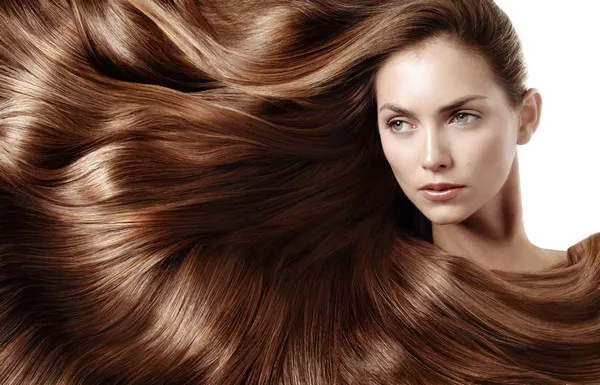We all dream of having luscious, healthy locks that shine with vitality. However, for many of us, dry hair remains an ongoing struggle, even when using conditioner. It can be frustrating to invest time and money in hair care products, only to end up with brittle and parched strands. In this article, we will delve into the reasons behind persistently dry hair despite the use of conditioner, and explore effective solutions to restore moisture and revitalize your tresses.
1. The Conditioner Conundrum: Understanding the Basics
Conditioners are designed to nourish and hydrate your hair, providing essential moisture to keep it soft, smooth, and manageable. However, before we investigate the reasons for dry hair, it is crucial to grasp the fundamentals of how conditioners work. Conditioners primarily consist of humectants, emollients, and occlusives.
2. Hidden Culprits: Common Causes of Dry Hair
a) Environmental Factors:
Environmental conditions play a significant role in hair health. Exposure to harsh sunlight, dry air, and extreme weather conditions can strip the hair of its natural moisture, leaving it dry and lifeless.
b) Overwashing:
Washing your hair excessively can strip away the natural oils that keep your strands hydrated. This leads to dryness, as the scalp struggles to replenish lost moisture.
c) Chemical Treatments:
Frequent use of chemical treatments like coloring, perming, or relaxing can damage the hair cuticle, making it more susceptible to dryness.
d) Heat Styling:
Excessive heat from styling tools such as straighteners, curling irons, and blow dryers can sap moisture from the hair, leaving it dry and brittle.
e) Hard Water:
The mineral content in hard water can leave a residue on the hair, making it dull, dry, and prone to breakage.
3. Conditioner Mistakes: Are You Doing It Right?
a) Product Selection:
Ensure that you are using a conditioner suitable for your hair type. Fine, thin hair requires lightweight conditioners, while thick, coarse hair may benefit from richer, more nourishing formulas.
b) Proper Application:
Apply conditioner evenly from mid-length to the ends, avoiding the scalp. Massage it gently into your hair and leave it on for the recommended duration to allow it to penetrate the strands.
c) Rinsing Technique:
Thoroughly rinse out the conditioner with cool water. Leaving residue behind can weigh down your hair and make it appear greasy or dull.
d) Frequency of Use:
Excessive or insufficient use of conditioner can both lead to dryness. Find a balance that works for your hair type and condition, whether it’s daily, every other day, or weekly.
4. Going Beyond Conditioner: Supplementary Hair Care Tips
a) Deep Conditioning Treatments:
Incorporate regular deep conditioning treatments into your hair care routine. These intensive treatments provide extra hydration and repair damaged strands, leaving your hair softer and more manageable.
b) Protective Styling:
Embrace protective hairstyles like braids, buns, or updos to shield your hair from environmental damage and reduce exposure to heat styling tools.
c) Trimming Split Ends:
Regular trims are essential to get rid of split ends, preventing them from traveling up the hair shaft and causing further damage and dryness.
d) Balanced Diet and Hydration:
A well-balanced diet rich in vitamins, minerals, and essential fatty acids can significantly improve hair health. Additionally, staying hydrated by drinking an adequate amount of water is crucial for maintaining hydrated hair.
5. Seeking Professional Advice:
a) Consulting a Trichologist:
If your hair continues to be excessively dry despite following proper hair care practices, it may be beneficial to seek the expertise of a trichologist. Trichologists are specialists who can analyze your hair and scalp health, identify underlying issues, and recommend personalized treatments or adjustments to your hair care routine.
b) Hair and Scalp Treatments:
Professional hair salons and spas offer a range of treatments specifically designed to combat dryness and restore moisture to your hair. These treatments may include deep conditioning masks, hot oil treatments, or scalp therapies to rebalance the scalp’s natural oils.
c) Prescription Medications:
In certain cases where dryness is caused by underlying medical conditions, such as scalp psoriasis or seborrheic dermatitis, a dermatologist or trichologist may prescribe medicated shampoos, creams, or oral medications to address the root cause and alleviate dryness.
Conclusion:
Dry hair can be a persistent and frustrating issue, even with the use of conditioner. Understanding the causes of dryness, practicing proper hair care techniques, and incorporating additional measures can help restore moisture and revive your hair’s health. By being mindful of environmental factors, avoiding excessive heat styling, choosing appropriate products, and seeking professional advice when needed, you can bid farewell to dry, lackluster hair and embrace the vibrant, nourished locks you desire. Remember, healthy and hydrated hair requires consistent care and attention, but the results are well worth the effort. So, take charge of your hair care routine and say hello to the silky, smooth, and radiant hair you deserve!

